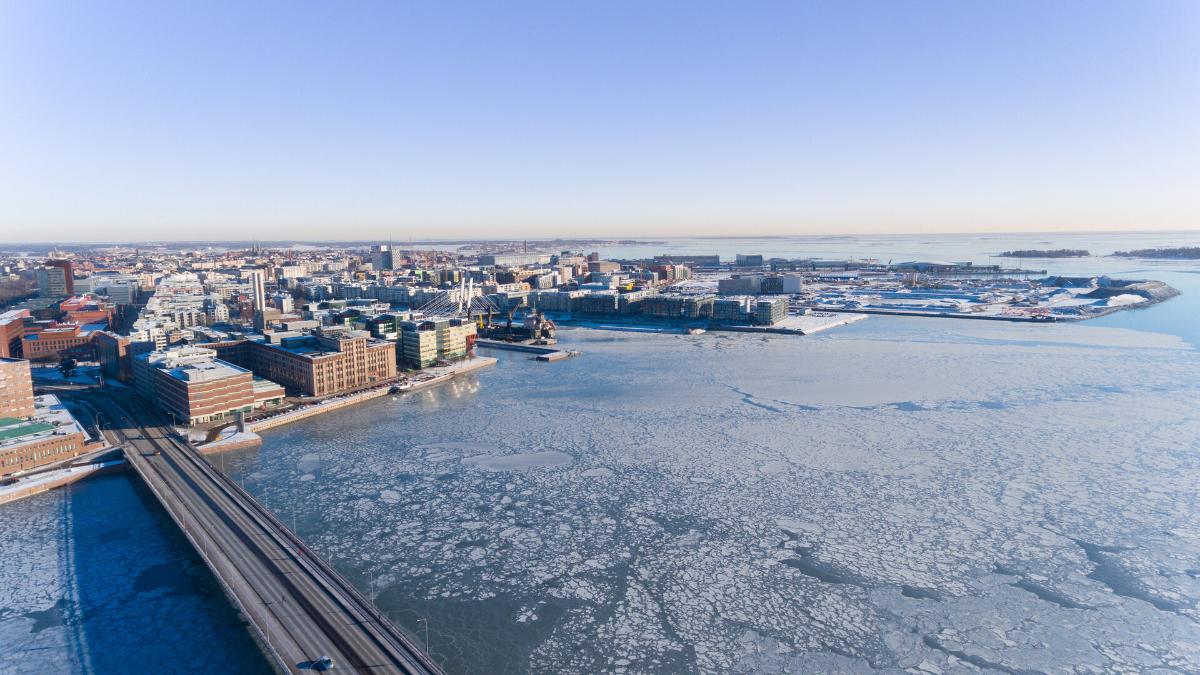Outlook Review: Green Transition is the Foundation for Growth
General government finances must be adapted and reformed in way that helps find solutions to climate crisis and biodiversity loss

The climate and ecological crisis and the sustainability gap in general government finances cannot be solved separately. Actions that strengthen general government finances can be targeted so that they systematically take the economy, legislation, taxation, incentives and governance structures towards the green transition. This is the conclusion of the Outlook Review published by the Ministry of the Environment.
According to the World Economic Forum, failure in climate action, extreme weather conditions and loss of biodiversity are the greatest risks that threaten the world in the coming decade. They also cause significant long-term risks to the economic system. The best way for Finland to respond to the sustainability challenge is to make sure that the ecological preconditions are in order when reforming the economy.
“The decision-makers have the responsibility for finding solutions to the climate crisis, strengthening biodiversity and ensuring the wellbeing of future generations. Responsibility can be born across generations by ensuring a just green transition. When adapting the economy, consistent reforms must be made to the steering mechanisms of the economy to support the green transition,” says Permanent Secretary Juhani Damski.
Tax and other economic reforms should be such that they support an effective climate and biodiversity policy. Harmful subsidies should be abolished and subsidies that are granted to companies should boost the green transition. Ecosystem accounting must be integrated into the central government accounts and the climate and environmental impacts of the measures must be assessed as part of the budgetary procedures.
Faster investments in green transition and circular economy, green transition to be guided by societal decision-making
In future, Finland’s growth and competitiveness can be built on solutions to the climate and environmental challenges. However, this requires that RDI funding will be increased and targeted to support the green transition, and that legislation also supports the transition from a linear economy to a circular economy.
A national permit, guidance and supervisory authority is needed to promote investments and the green transition. This change would allow environmental services of the central government to be provided by a single authority, in accordance with the one-stop-shop model. Similarly, legislation must be developed in a way that supports even smoother processing of investments in the green transition.
The green transition requires that competence related to sustainability issues will be strengthened in all fields of study. This is why expertise in the green transition should be a key priority in continuing professional education.
Common policy to curb climate change and biodiversity loss
For Finland to be carbon neutral by 2035 and carbon negative soon after that, the sufficiency of emission reduction measures must be assessed at the beginning of the government term and the measures must be strengthened as necessary. The net sink of the land use sector must be strengthened in line with the Climate Act and a quantitative target must be set for the sink. Emission reductions can be implemented cost-effectively e.g. through emissions trading, taxes and legislation. Halting biodiversity loss requires a framework such as the Climate Act through which measures with impacts on the state of the natural environment can be planned in a comprehensive and goal-oriented manner. Even wider use should be made of the ecological compensation mechanism.
Finland must be ambitious in promoting the Paris Agreement to curb climate warming and the Kunming-Montreal Global Biodiversity Framework and EU Biodiversity Strategy to halt biodiversity loss and improve the state of biodiversity. The work to prevent climate change, biodiversity loss and pollution must be mainstreamed: it must be linked even more strongly and comprehensively to extensive decision-making processes, to the preparation of strategies and measures and, in particular, to the assessment of economic impacts.
Construction and housing policy produce good environments to live in with regard to natural environment and everyday life
The built environment will be developed to make it safe and carbon neutral. Together with the real estate and construction sector, new measures are sought to enhance the wellbeing offered by the built environment. At the same time, solutions are sought that strengthen the competitiveness and productivity of the construction sector.
The community structure should function even better and make sustainable choices easy. The role and capabilities of municipalities, cities and regions are highly important in enabling sustainable lifestyles. Cooperation especially with large cities must be strengthened. Housing that meets the people’s needs in a well-functioning environment makes the changes caused by the green transition easier to accept.
A well-functioning housing market is needed to ensure that housing is available for different life situations and that the types of housing meet the needs of e.g. the ageing population. The housing policy development programme is implemented to ensure a positive development of different kinds of residential areas. The land use legislation and national land use objectives must be reformed to meets the changing needs of society.
The Outlook Review further elaborates the broader themes and the analysis of the operating environment presented by the Ministry in the Futures Review. The Outlook Review is intended to support the next Government in planning future measures.
Inquiries
Juhani Damski
Permanent Secretary
tel. +358 295 250 445
Juho Korpi
Development Director
tel. +358 295 250,136
[email protected]
